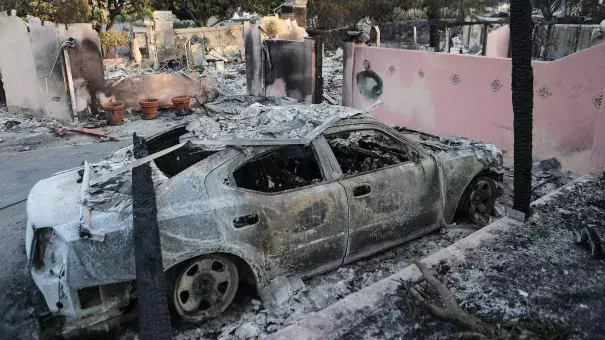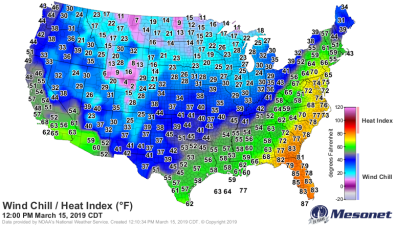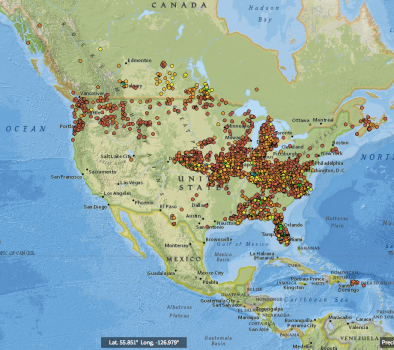Go deeper: "Human fingerprint" on California's blistering heat wave

Southern California's intense heat wave, which has shattered dozens of temperature milestones, including all-time records, is exactly the kind of event that is becoming more likely and severe due to global warming, scientists told Axios.
Why this matters: The heat wave has sparked destructive wildfires and threatened public health for millions of Californians, and is a stark reminder that even a small amount of global warming can push climate extremes into new and far more dangerous territory.
By the numbers
Consider some of the records that have been set so far during what now ranks as one of Southern California's all-time hottest heat waves.
- 82° Fahrenheit: Hottest all-time overnight low temperature on record for any month in Burbank, California.
- 79°F: Hottest overnight low temperature on record for the month of July in L.A. on July 7.
- 111° F: Hottest daytime high temperature ever recorded at the UCLA weather station in Los Angeles, set on July 6. This beat the old record of 109°F, set in 1939.
- 114°F: Hottest all-time temperature on record at Burbank Airport, recorded on July 6.
- 120° F: Highest temperature — set in Chino on July 6 — ever recorded by any automated weather station in the valleys or coastal areas around Orange, Riverside, San Bernardino and San Diego Counties.
The big picture: This event occurred months earlier than usual, and still set all-time records. California's hottest time of year tends to be in the early fall, when dry, down-sloping winds, known as the Santa Ana, blow from east to west, compressing and heating up the air as it flows into Los Angeles and San Diego.
...
Stanford University climate scientist Noah Diffenbaugh has published studies showing how a relatively small shift in the global average surface temperature of just 1° Celsius, or about 1.8°F, in the past century has dramatically upped the odds of severe heat events.
When we look around the world at record hot events we find there’s already a human fingerprint at 80% of the events where we have observational records.
— Diffenbaugh
Daniel Swain, a climate scientist at UCLA, noted that there has not yet been a formal study on the connection between this heat wave and climate change, since that could take a few weeks to complete. Such studies are known as "climate attribution" research. However, the climate change link to this event is already evident, he said.
The reality is when it comes to heatwaves now there’s almost always a human fingerprint. One of the clearest consequences of global warming is more heat, higher temperatures.
— Daniel Swain, climate scientist at UCLA
Michael Wehner of Lawrence Berkeley National Laboratory, who is working to conduct extreme event attribution studies in advance of an event, told Axios via email, that "[i]n probabilistic terms, climate change increased the chances of the heat wave by about 20 to 50 times," adding that there is at least a 99% likelihood that human-induced climate change "increased the severity of this heat wave."
Related Content




